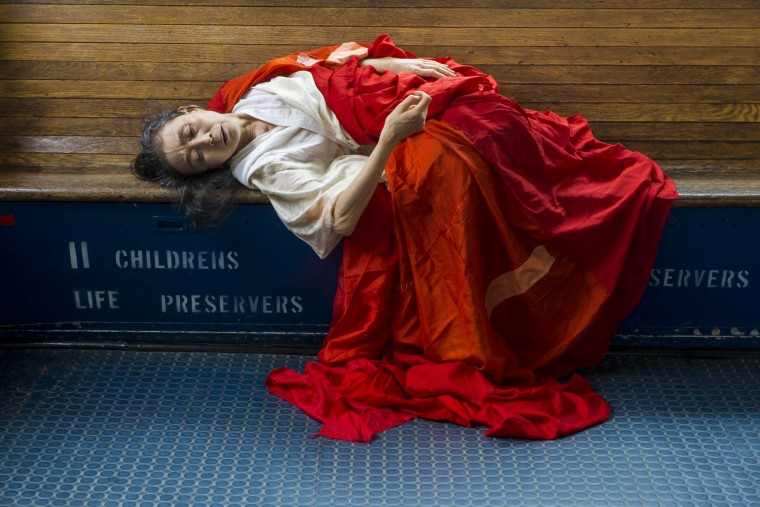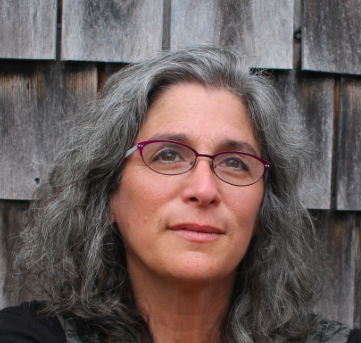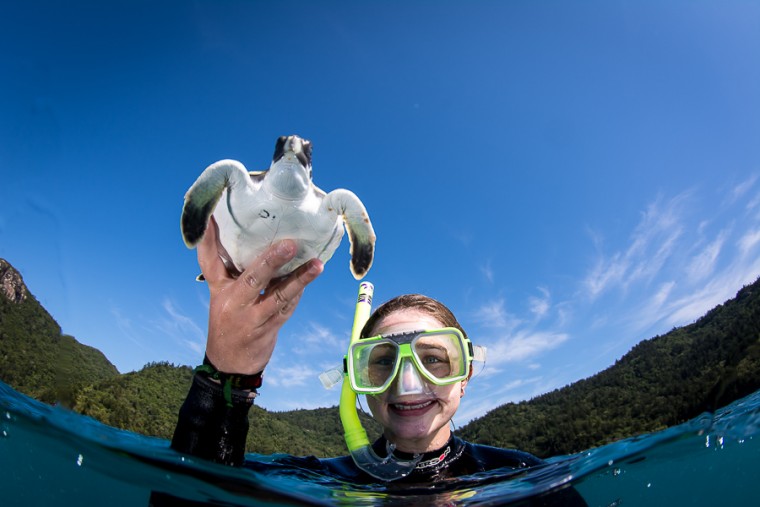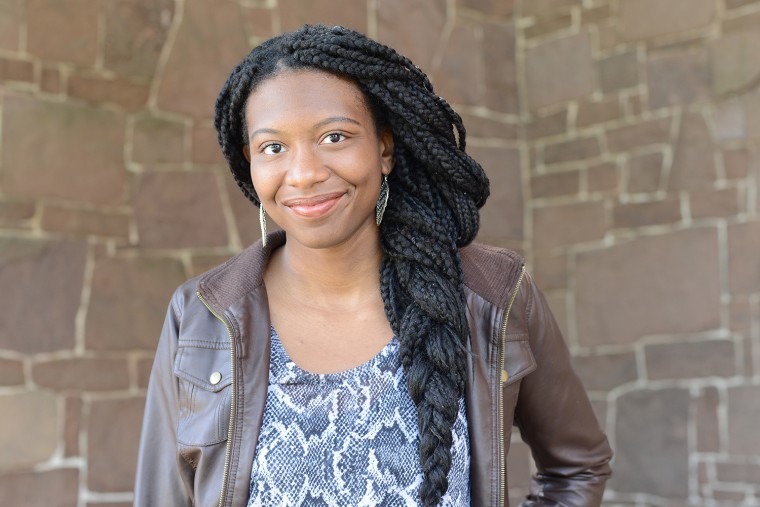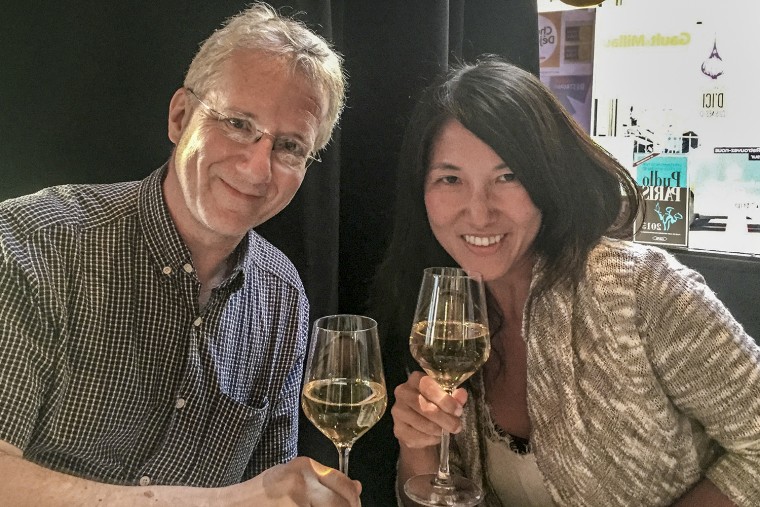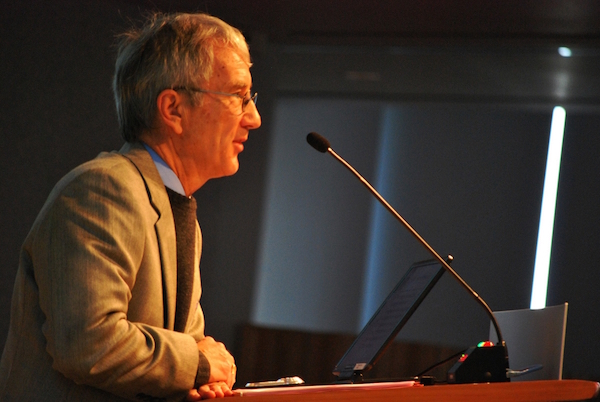Building off research she did for her work "Body in Places" at Wesleyan in fall 2015, Visiting Instructor in Dance Eiko Otake will present a major platform at Danspace Project in New York City on March 11. The free talks include those by Wesleyan faculty members William Johnson, professor of history, professor of East Asian Studies, professor of science in society, professor of environmental studies, and Katja Kolcio, associate professor of dance, associate professor of environmental studies. March 11 marks the fifth anniversary of the earthquake, tsunami and nuclear disaster in Fukushima, Japan. A photo collective by Eiko and Johnston will be…
Sonia Sultan, professor of biology, professor of environmental studies, is the author of Organism and Environment: Ecological Development, Niche Construction, and Adaptation, published by Oxford University Press (London and New York) in November 2015. Organism and Environment is an authoritative graduate textbook of ecological development ('eco-devo') set in the context of diverse natural systems. The book explores how niche construction contributes to ecological interactions and evolutionary dynamics and includes detailed case studies showing how regulatory mechanisms lead to plastic eco-devo responses. Sultan worked on the book for the past six years, including a year spent on a fellowship at the Institute for Advanced…
The historic global deal on climate change reached by 190 countries in Paris will help the economy, not hurt it as critics argue, writes Huffington Foundation Professor of Economics and Environmental Studies Gary Yohe in an op-ed in The Hartford Courant. "The evidence in the peer-reviewed economic literature, as well as real experience around the world and in the United States, shows that climate action not only protects public health by reducing pollution, but also protects the economy from extreme weather shocks and other complications that have and will arise from a changing climate. The sooner we act, the more money…
Gary Yohe, the Huffington Foundation Professor of Economics and Environmental Studies, was a guest on WNPR's "Where We Live" to discuss drought and climate change, particularly in light of the climate talks going on in Paris. "Droughts have occurred on every continent. They have occurred certainly in North America—Texas has suffered a severe drought, California has suffered a severe drought," said Yohe. "I'm not sure New England has suffered a severe drought but we are certainly below average in terms of rainfall. One of the things that people in Paris are worried about though, is that not only are drought conditions a source…
This month, Lori Gruen accepted a three-year appointment as a Faculty Fellow at Tufts' Cummings School of Veterinary Medicine's Center for Animals and Public Policy. Gruen is the William Griffin Professor of Philosophy, professor of feminist, gender and sexuality studies, and professor of environmental studies at Wesleyan. She also coordinates Wesleyan Animal Studies. The mission of the Tufts University's Center for Animals and Public Policy (CAPP) is to conduct and encourage scholarly evaluation and understanding of the complex societal issues and public policy dimensions of the changing role and impact of animals in society. As a Faculty Fellow, Gruen will explore human-animal relationships with Tufts…
Associate Professor of History Jennifer Tucker is the co-author of an op-ed in the Boston Globe titled, "What the Clean Air Act can teach us about reducing gun violence." Tucker and co-author Matthew Miller of Northeastern University write, "The recent scandal over Volkswagen’s polluting engines vividly illustrates the contrast between the way Americans, and in particular elected officials, treat guns and the way we (and our elected officials) treat cars — both of which kill approximately 32,000 Americans every year." The Clean Air Act, passed in 1970, has averted tens of thousands of premature deaths though "a systematic and scientific approach to…
Chloe Nash ‘16, a double major in biology and environmental studies, contributed to groundbreaking research on the mysterious Flatback sea turtle — a species with only two photographs in the wild, both of the same individual turtle. While studying abroad in Australia last spring, Nash volunteered at James Cook University for a project that involved raising 30 flatbacks from hatchlings and attaching GPS devices to their shells.
The turtles were released in Australia’s Great Barrier Reef and seven are being tracked by satellite. This research is the first time Flatbacks, only found in Australia, have been monitored underwater.
At a time when gun deaths are spiking and Congress has failed to enact significant legislation to tackle the problem, Associate Professor of History Jennifer Tucker writes an op-ed looking at how we got here. She contends that it is Hollywood’s version of history—not reality—that is behind the belief that guns have been a critical part of American culture over centuries. She writes: The 1953 movie “Shane” exemplifies the narrative of a “good man with a gun.” Responding to a woman’s wish that guns be banished, Shane replies: “A gun is just a tool, Marian. It’s as good or bad as…
Seventy years later, it is widely believed that President Harry S. Truman made a decision to authorize the bombings of Hiroshima and Nagasaki. The truth, writes William Johnston in the Hartford Courant, is that he never did, at least not explicitly. Johnston, professor of history, professor of East Asian Studies, examines in an op-ed how history has been rewritten surrounding the bombings. In fact, Truman's first explicit decision about atomic bombs was to later order that their further use be stopped without his "express authority." But in summer 1946, Johnston explains, the need arose to write an alternative narrative, as the bomb's…
Science in Society major Stacy Uchendu '17 is participating in Wesleyan's Ronald E. McNair Post Program, which assists students from under-represented groups in preparing for, entering and progressing successfully through post graduate education. Stacy is researching second generation biofuels as a McNair Scholar.
Two Wesleyan faculty members presented talks at the 14th International Conference on the History of Science in East Asia, held in Paris, July 6-10. On July 7, Miri Nakamura, associate professor of East Asian studies, read from a paper titled "Atomic Maids," which focused on the role of Japanese housekeepers in mystery novels that were indirect criticisms of nuclear issues. On July 9, Bill Johnston, professor of history, professor of East Asian studies, professor of Science in Society, professor of environmental studies, spoke about the changing role of the environment in ideas about disease causation in 19th century Japan. The conference is held every four…
Gary Yohe, the Huffington Foundation Professor of Economics and Environmental Studies, was reappointed by Mayor Bill DeBlasio to the third New York City Panel on Climate Change on June 30. Yohe and 18 other experts are tasked with ensuring that the best available climate science continues to inform the city's resiliency planning. The panel will build on reports by previous panels, and will "look at climate risks through the lens of inequality at a neighborhood scale, as well as focus on ways to enhance coordination of mitigation and resiliency across the entire New York metropolitan region," according to a press release from the…


